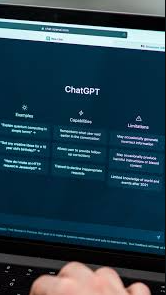Aimed at professionals, the new AI tool promises to revolutionise online research but comes with limitations.
Amid increasing competition from Chinese AI companies like DeepSeek, OpenAI has launched Deep Research, an innovative artificial intelligence tool designed to accelerate online research. On February 2, OpenAI introduced the service, which allows select paying users of its ChatGPT chatbot to quickly compile comprehensive research reports by analysing hundreds of online sources within minutes.
The company claims that Deep Research can complete tasks in a fraction of the time it would take a human researcher. According to OpenAI, what would typically take hours of research can now be condensed into just tens of minutes with a single query.
Targeted towards professionals in sectors such as finance, science, policy, and engineering, the tool promises to deliver accurate, detailed, and reliable research with a high degree of precision. OpenAI emphasised that Deep Research is designed to save valuable time by simplifying complex, time-consuming web-based research tasks, offering users a streamlined alternative to traditional research methods.
This new tool marks the second AI agent release by OpenAI in 2025. Following the launch of Operator in January, which assists with tasks like booking flights, making grocery orders, and facilitating purchases, Deep Research aims to enhance productivity in professional research. Both tools are currently only available to ChatGPT Pro users, who pay a subscription fee of US$200 (approximately S$273) per month.
In the rapidly growing AI landscape, OpenAI faces increasing pressure from global competitors, including Microsoft, Anthropic, and a range of other startups that are also developing AI-driven tools for personal and professional use. One of the most notable challenges comes from Chinese firm DeepSeek, which has made substantial progress, causing concern among Western developers that they may soon catch up.
Despite its promising capabilities, OpenAI has acknowledged that Deep Research is still in the early stages and has limitations. The company noted that while it offers more accurate responses than previous ChatGPT models, the tool can occasionally “hallucinate” facts or make incorrect inferences. Furthermore, it may struggle to distinguish between authoritative information and unverified rumours, and it sometimes fails to express uncertainty or make accurate distinctions in its citations and formatting.
OpenAI reassured users that these issues would improve over time with increased usage and refinement. Initially, users of Deep Research will be limited to 100 queries per month, although OpenAI plans to expand access to its Plus, Team, and Enterprise subscribers in the future, although no specific timeline has been provided.
As the competition in the AI sector intensifies, the launch of Deep Research represents a bold step for OpenAI in its mission to shape the future of AI-powered research.








